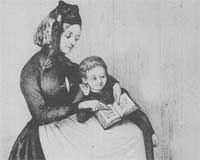Difference Between Erikson and Freud
Erikson vs Freud
Erikson and Freud are two names that one cannot miss while talking about psychology. Sigmund Freud is called the father of psychology. In terms of theories, Freud is known for his psychosexual theory, and Erikson is known for his psychosocial theory.
Though both believed that personality develops in a series of predetermined stages, both of them have different explanations.
While Freud based his theory on sex, Erikson did not give much importance to the sexual drive of an individual. On the other hand, Erikson focused on identity.
Freud believed that an individual’s identity developed during adolescence. Erikson believed, however, that an individual’s identity developed and evolved throughout a person’s life. Unlike Freud’s thoughts that maturation had an important role, Erikson placed more importance to the cultural demands on a child.
Freud’s psychosexual theory talks about different stages of development like: Oral stage, Anal region, Phallic Stage, stage of Latency, Genital Stage. Erikson’s psychosocial theory also talked about different stages like: Trust vs. Mistrust, Autonomy vs. Doubt, Initiative vs. Guilt, Industry vs. Inferiority, Identity vs. Role Confusion, Intimacy vs. Isolation, Generativity vs. Stagnation, and Integrity vs. Despair.
According to the Oral stage, (from birth to one year), a child’s primary source of pleasure is through the mouth by sucking, tasting, and eating. Erickson says that it is a period (Trust vs. Mistrust) when children try to learn to trust and mistrust their caregivers. In the Anal stage (1 to 3 years), a child gains a sense of mastery by controlling bowel and bladder movements. However, Erikson says it is a period (Autonomy vs. Doubt) when children develop self-sufficiency by controlling activities such as eating, toilet training, and talking.
In the next stage of Freud’s Phallic stage (3-6 years), the libido’s energy focuses on the genitals, and they begin to identify with their same-sex parent. To Erikson, however, it is a period of Initiative vs. Guilt where a child begins to take more control over their environment.
During the ages of 7 to 11 years, Freud’s Latent Period says that the libido energy is suppressed and children focus more on school, hobbies, and friends. Erikson’s Industry vs. Inferiority stage says that a child develops a sense of competence.
Coming to the Adolescence stage, Freud’s Genital Stage says that it is a period when children look for romantic relationships. Conversely, Erikson’s Identity vs. Role stage says that it is a period when a child develops a personal identity.
In adulthood, Freud only talks of a single stage called Genital Stage which he says would last all through life. However, Erikson has divided this Adulthood stage into three. Intimacy vs. Isolation is a stage when an adult explores romance. The Generativity vs. Stagnation stage is when middle-aged adults have a sense of the society, and the Integrity vs. Despair stage talks of older adults.
Summary:
1.Freud is known for his psychosexual theory, and Erikson is known for his psychosocial theory.
2.Unlike Freud’s thoughts that maturation had an important role, Erikson placed more importance to the cultural demands on a child.
- Difference Between CNBC and Fox Business - October 3, 2011
- Difference Between Distilled Water and Boiled Water - September 30, 2011
- Difference Between McDonalds and Burger King - September 30, 2011


Well done,well executed
Perfect just what I looked forward to finding thanks alot